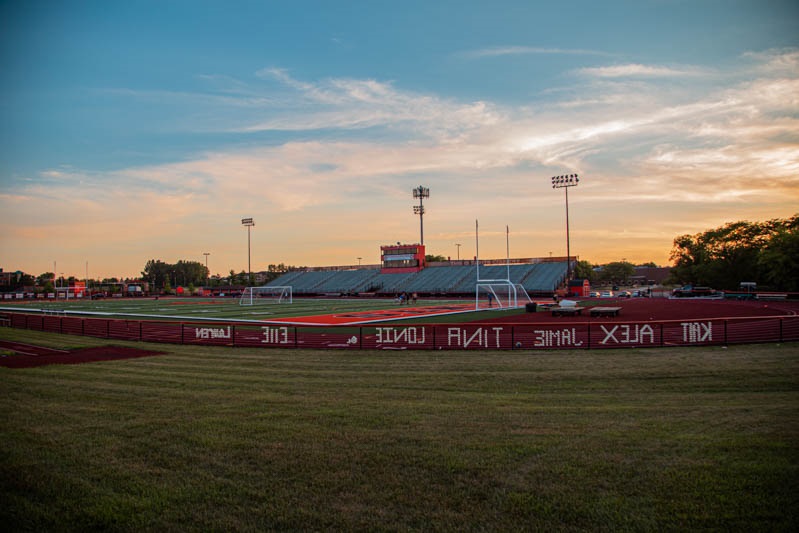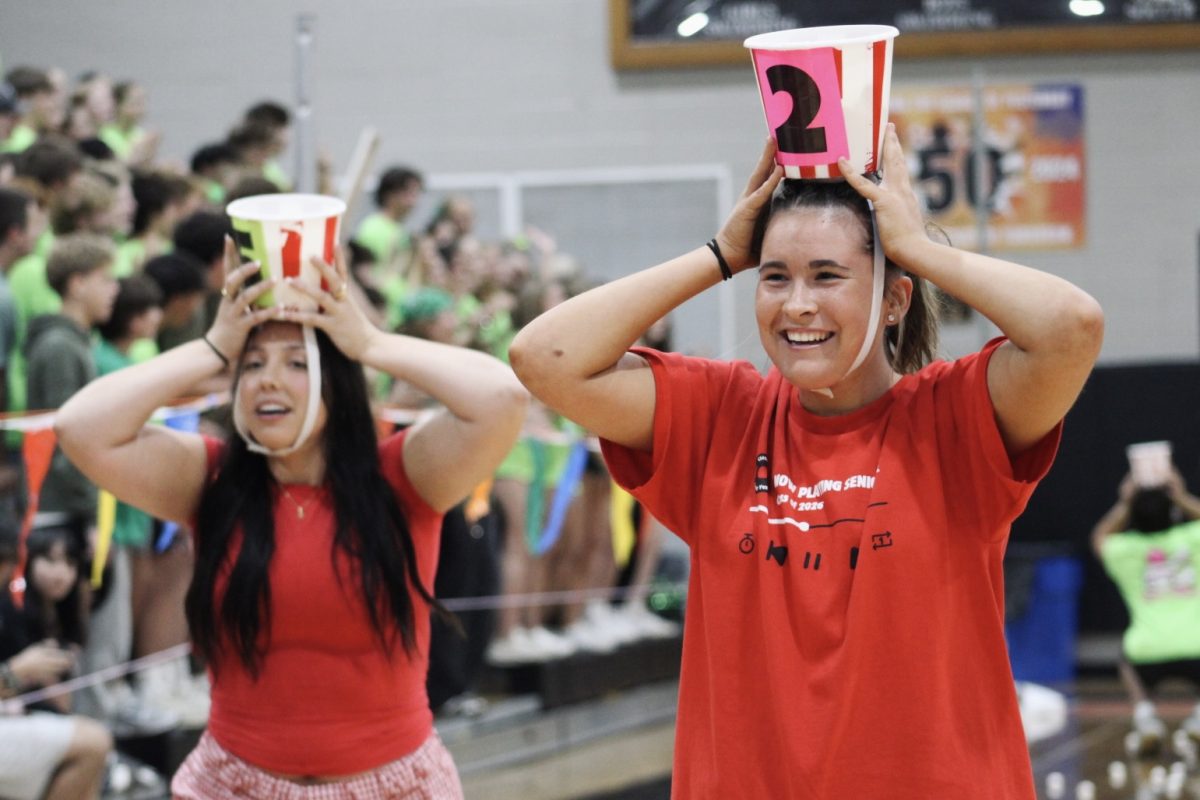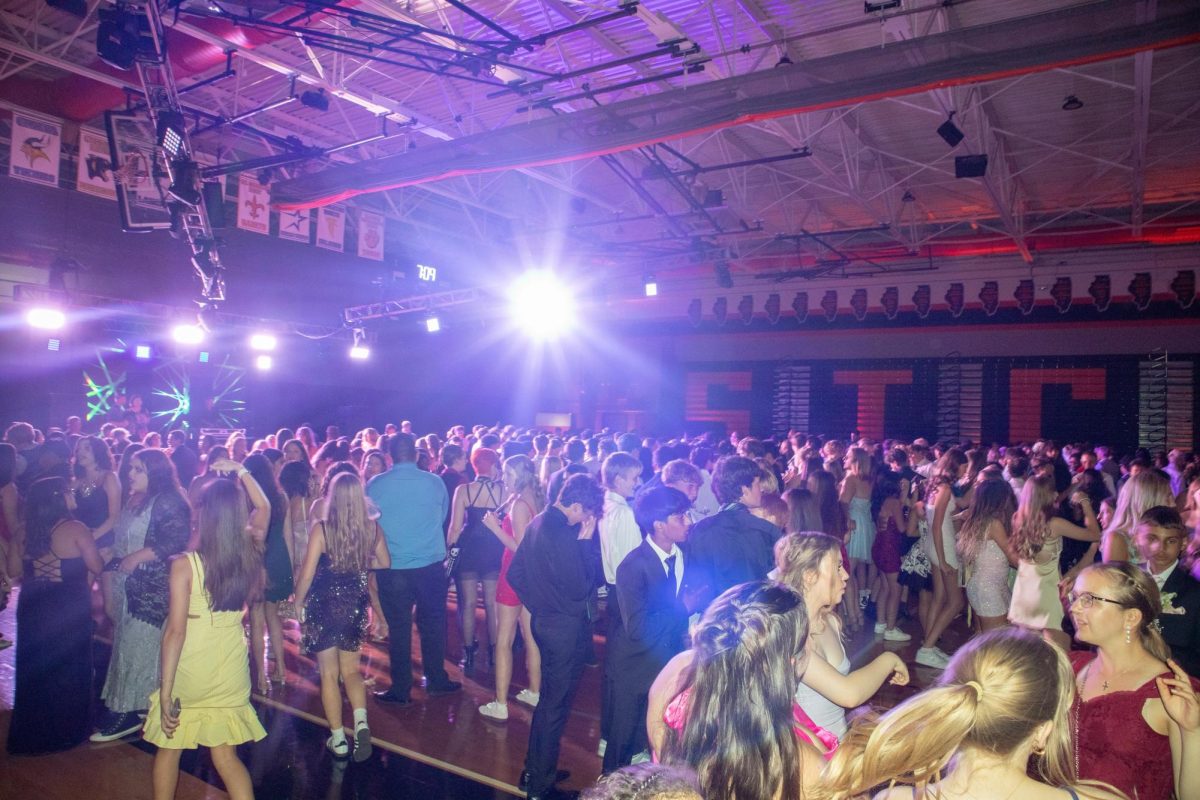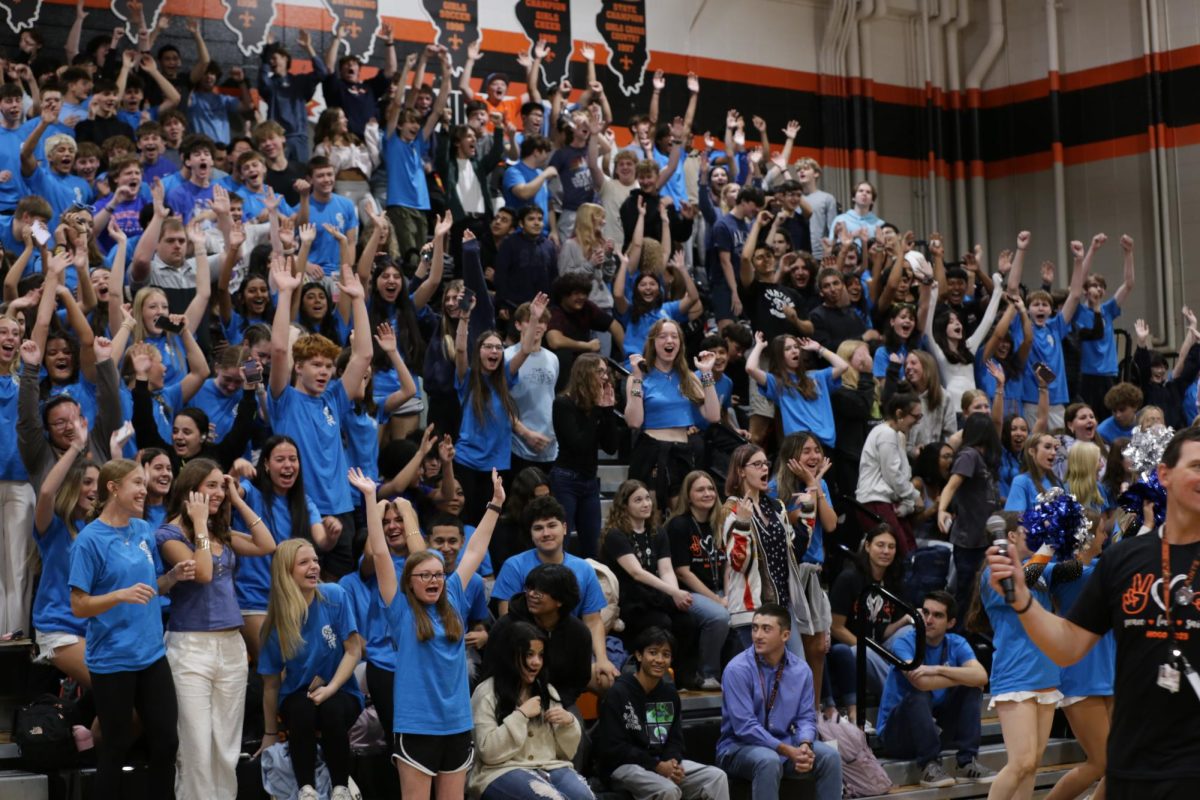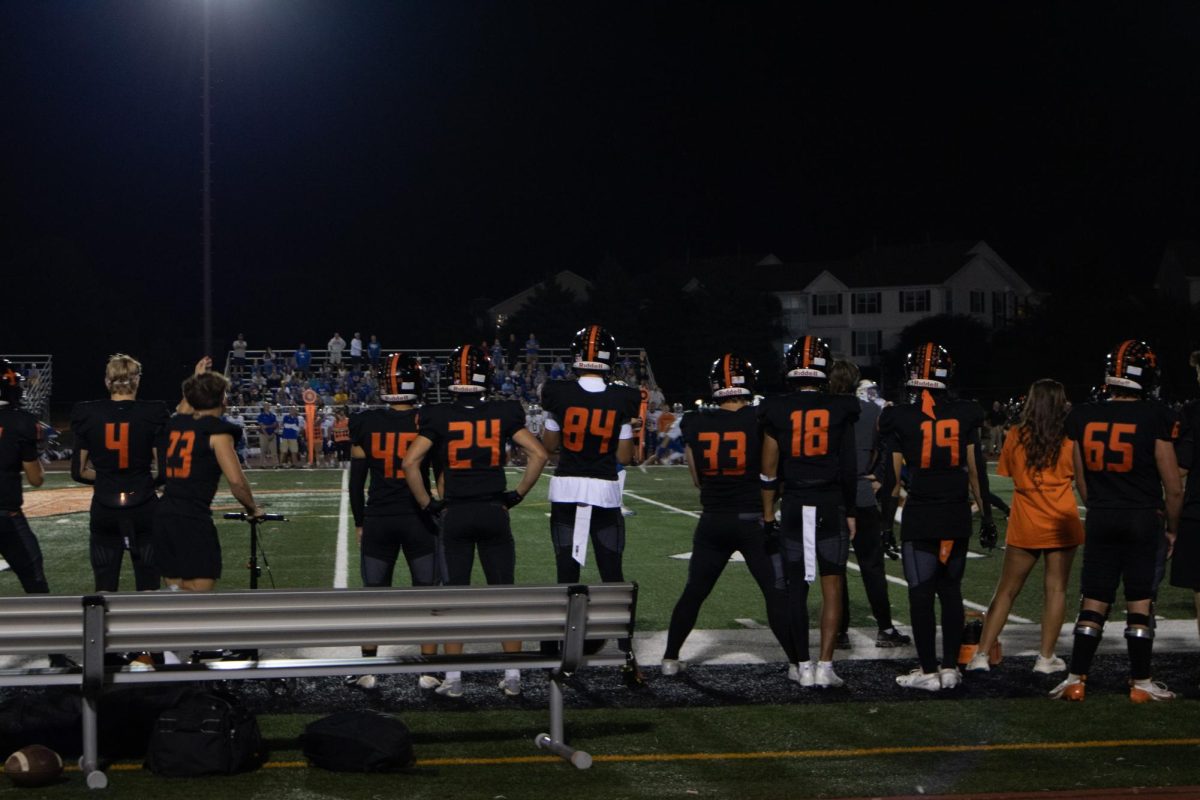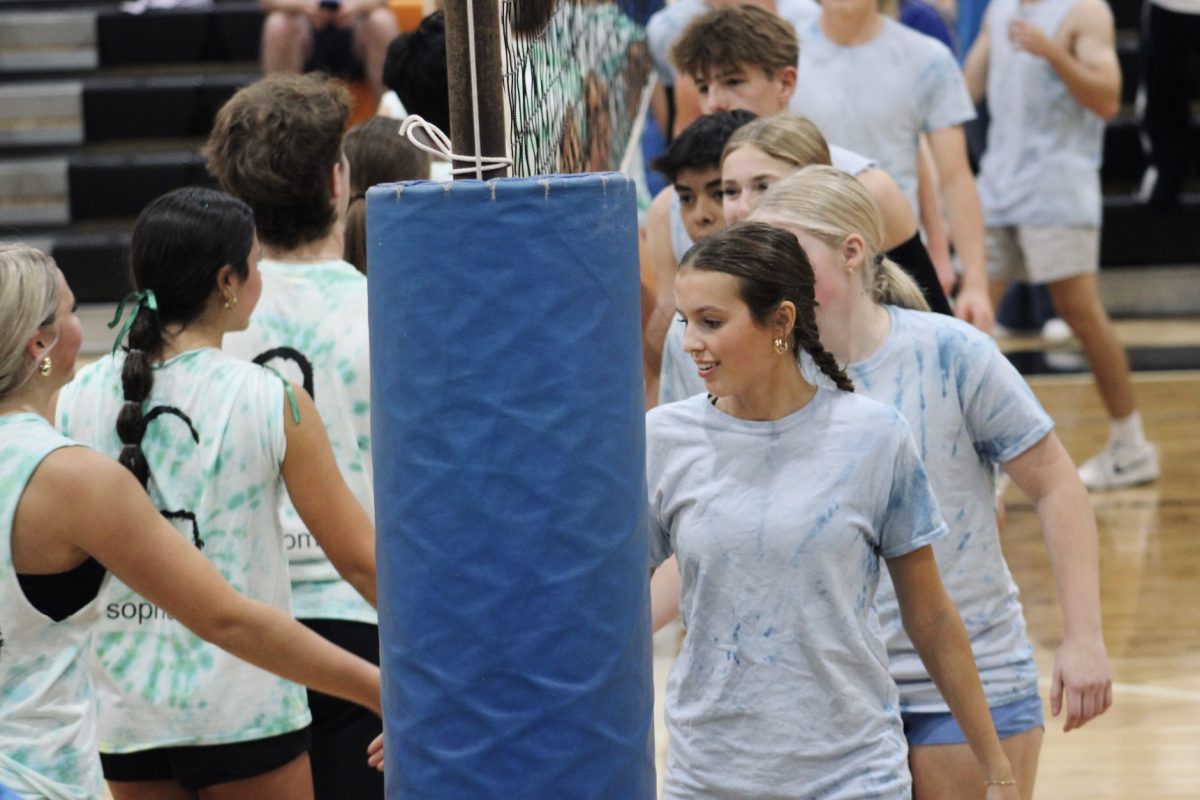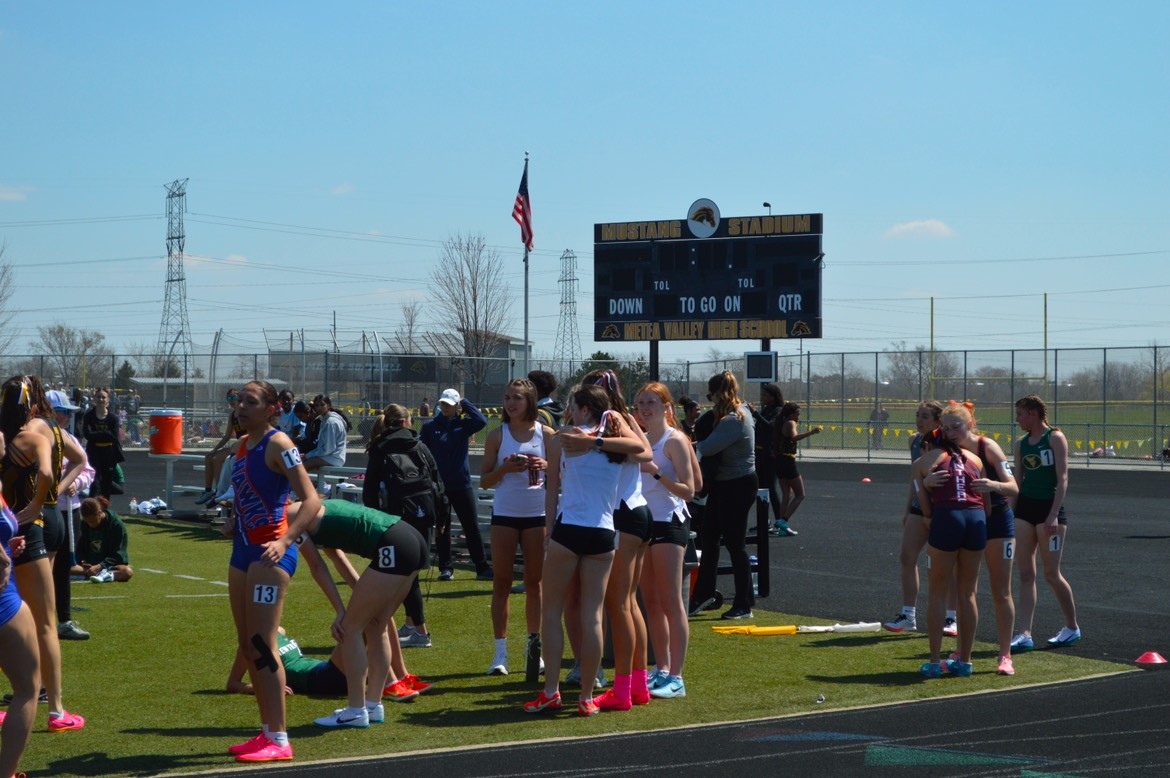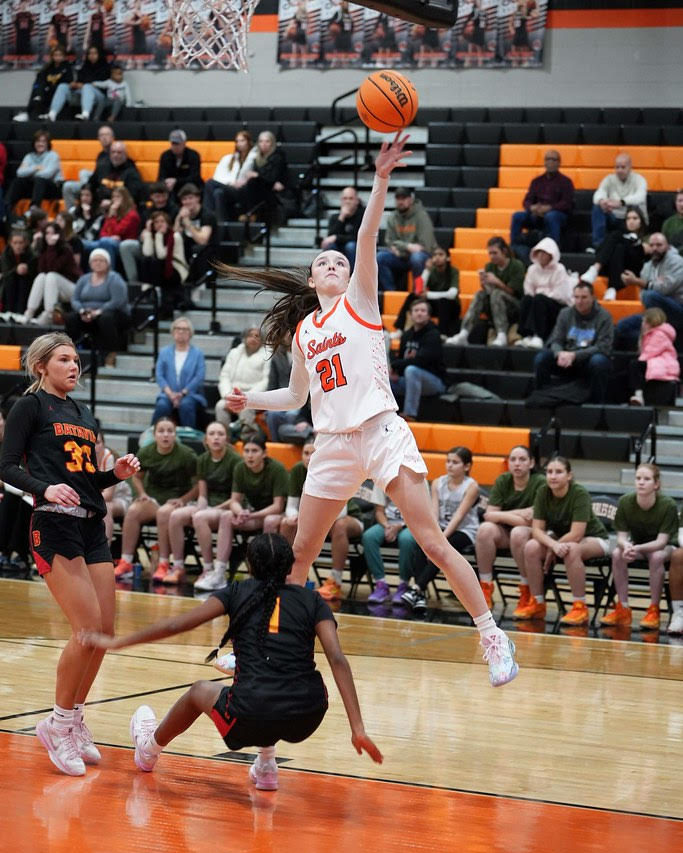On July 29, high school students across Illinois waited with bated breath and anxious minds. The announcement was scheduled to be released in the early afternoon, and as the hours passed by, it seemed impossible to wait. This was the day when many students would learn some of the most important news regarding their school year: how the IHSA (Illinois High School Association) would regulate sports for 2020-2021 in light of the COVID-19 pandemic.
This may seem like a dramatic reaction to an announcement by Illinois bureaucrats; however, sports are no small matter for many students across the state, and East is no exception.
Rumors have circulated throughout the summer on what the ruling would be. The biggest fear of many was that contact sports would be canceled entirely, though other radical plans were being discussed by many, much of it speculation.
When the plan was released, it was a relief to many that the IHSA would allow all sports to play in some capacity. According to the IHSA’s online announcement, “the COVID-19 pandemic led the Board to propose unprecedented scheduling changes for the 2020-21 school year. They include playing all sports over the course of truncated fall, winter, spring, and summer seasons.”
However, this does not mean that sports will be played in their regular seasons, or during the months they usually take place. To quote the same IHSA article, “several team sports will shift to new seasons.” Among these sports switching seasons are football, boys soccer, and girls volleyball.
In addition, the seasons themselves are shorter than those in a typical year. The fall season will now run from August 10 to October 24, the winter season from November 16 to February 13, the spring season from February 15 to March 1. A new summer season has also been added, and will take place from May 3 to June 26.
These dates do not include the weeks in which State Series tournaments would take place. The way these season-ending competitions will run is not set in stone; according to the IHSA bulletin, “State Series tournament decisions will be made on a sport-by-sport basis … but providing postseason opportunities remains a priority of the Board. This could potentially include culminating State Series Tournaments after Regional or Sectional rounds, or seeking other non-traditional means to conduct events.”
The IHSA’s decision to change seasons was based on the Illinois Department of Health (IDPH)’s assessment of each sport’s risk level. Sports were labelled as lower, medium, or higher risk, and this determines if they are running in the fall, winter, spring, or summer seasons, and the restrictions set for athletes and coaches.
These plans sound positive in theory, but many athletes, coaches, and fans still have concerns. They’re worried about what their sport will look like and how a new season might impact play, as well as college recruiting and future sports careers.
Vincenzo Dinuzzo is a P.E. teacher at East, as well as the coach of the boys’ and girls’ varsity soccer teams. The boys’ soccer season has been pushed from their traditional fall season to the spring, while the girls’ season will now run in the summer instead of the spring.
Dinuzzo says that, for his athletes, “the biggest change is the amount of time that the players will have to prepare for the season.” In addition, he believes that the new months of the seasons will impact play.
“It will be different for the boys because they are accustomed to playing high school soccer in the Summer, [so] changing the start to February will be an adjustment.” He does not think that this will necessarily help their play, as he says that “it is traditionally more difficult to prepare for an outdoor sport during the winter months.” In particular, if they cannot use indoor complexes due to COVID-19 concerns, Dinuzzo says, They will have to get creative in the way that they prepare for the season.”
Dinuzzo does not think that the change will negatively impact the girls. He actually thinks that a later season will “allow them more time to prepare for the season and benefit their ability to play at a high level immediately.”
Soccer is not the only sport that anticipates changes in play or performance. Even sports that remain in their traditional seasons will have to deal with new dynamics. Molly Yetter, a member of the girls’ swim and dive team (which will remain in the fall, as usual), thinks that an unprecedented and unusual summer of training will impact many swimmers in the coming months.
Yetter says that “people who were unable to train this summer will have a hard time getting back into competition shape in such a short amount of time,” and that this “could have an effect on their performance.” She does not think her swimming will be negatively impacted because she has been “lucky enough to be training club this summer,” but many athletes have not had these same opportunities due to COVID-19’s unpredictable closing of many pools and athletic centers.
Most athletes across the state are in a situation with limited playing opportunities. To encourage equality, the IHSA announced in the same July 29 article that “IHSA by-laws do not prevent schools who are conducting remote learning from participating in IHSA sports and activities.” This means that the decision to continue play will rest with individual districts, regardless of their learning format for the school year.
One of the primary concerns of many athletes, families, and coaches with the new schedule is college recruiting. With many seasons shifted to unusual months and the cancelation of spring sports last year, there is concern about exposure to college recruiters.
“I think the recruiting process for student-athletes who want to play at the next level will be impacted,” Dinuzzo says. He thinks that the members of his girls’ team “will feel as if they were slighted after getting their season canceled last Spring and now shortened this Spring,” this equates to fewer opportunities to show colleges their skill before the admissions process.
Dominick Leblanc, an incoming junior who plays baseball for East, says that he is “not a fan” of the IHSA plan. “The amount of games and the timing doesn’t seem fair [to spring sports],” Leblanc says. “Spring sports didn’t get an entire season last year and fall did.” To him, that doesn’t seem fair for spring athletes, in particular those who wish to pursue sports post-high school.
In the midst of the COVID-19 pandemic, there are few aspects of the 2020-2021 school year that will be exactly the same as previous years. Extracurriculars, specifically sports, are not exempt from these changes. However, both Yetter and Dinuzzo said that they are thankful for any chances they are offered to compete.
“I think that it is unfortunate that my senior year will not be normal, but I am glad we have a season at all, even if it is modified,” Yetter says.
Dinuzzo says the boys he coaches “were happy that they would get an opportunity to play for the school,” when he spoke with them. He says that he knows his female athletes are disappointed, but that he also believes “they see the big picture and appreciate any opportunity that they will get.”


